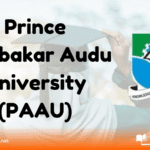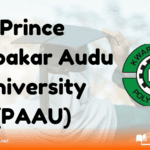Kaduna Polytechnic, located in Kaduna, Nigeria, was established in 1956 as Kaduna Technical Institute, following the recommendations of the British Higher Education Commission. Initially founded to provide technical education in Northern Nigeria, the institution was renamed Kaduna Polytechnic in 1968 under Federal Government Decree No. 20, which was later revised in 1979 and again in 1991 under Decree No. 40, when the Federal Government fully took over its administration.
- Motto: Innovation and Excellence
- Type of Institution: Public Polytechnic
- Year of Establishment: 1956
- Rector: Dr. Suleiman Umar
- Location: Kaduna, Nigeria
The polytechnic was created with the aim of offering diverse education, training, and research opportunities in technology, sciences, commerce, and humanities. It also offers in-service programs for public servants. Kaduna Polytechnic operates across four large campuses and boasts a cosmopolitan environment, attracting students from across Nigeria and other countries. From an initial enrolment of 158 students in 1961, the institution now serves over 25,000 students, offering 138 programs across 44 academic departments.
College of Business & Management Studies (CBMS) – Ungwan Rimi
- Accountancy
- Business Administration
- Marketing
- Procurement & Supply Chain Management
- Banking & Finance
- Management Studies
- Office Technology Management
- Cooperative Economics and Management
College of Environmental Studies (CES) – Barnawa
- Architecture
- Building
- Quantity Surveying
- Urban & Regional Planning
- Environmental Science
- Estate Management
- Cartography and Geographic Information Systems (GIS)
- Photogrammetry and Remote Sensing
College of Engineering (COE) – Tudun Wada Main Campus
- Agricultural and Bio-Environmental Engineering
- Civil Engineering
- Mineral and Petroleum Resources Engineering
- Railway Engineering
- Water Resources Engineering
- Chemical Engineering
- Electrical/Electronics Engineering
- Mechanical Engineering
- Computer Engineering
- Foundry Engineering
- Metallurgical Engineering
- Renewable Energy Engineering
- Petroleum and Gas Engineering
College of Science and Technology (CST) – Tudun Wada Main Campus
- Applied Biology
- Applied Chemistry
- Applied Physics
- Computer Science
- Mathematics and Statistics
- Agricultural Technology
- Nutrition and Dietetics
- Food Technology
- Tourism Management Technology
- Printing Technology
- Textile Technology
- Fashion Design and Clothing Technology
- Hospitality Management
College of Administrative Studies and Social Sciences (CASSS) – Sabon Tasha
- Public Administration
- Local Government Studies
- Library and Information Science
- Mass Communication
- Languages
- Social Sciences
- Legal Studies
- Social Development
College of Technical and Vocational Education (CTVE) – Tudun Wada Main Campus
Academic Strength and Growth:
Kaduna Polytechnic is recognized as one of the largest technical institutions in Africa, with a staff population of over 2,900, and its reputation spans beyond Nigeria. It originated from the amalgamation of the College of Science and Technology, Staff Development Centre, and Survey Unit in 1968. The institution is also known for its significant role in technical education, driven by the contributions of Sir Ahmadu Bello, the late Premier of Northern Nigeria, and other prominent figures.
Symbol and Crest:
The polytechnic’s emblem, the “spider and its web” (Gizogizo), designed by artist Alexius Enche, represents industry, sharpness, and tenacity, symbolizing the institution’s commitment to excellence. The hexagonal crest reflects the original six northern states that co-owned the institution before its takeover by the federal government in 1991.
Today, Kaduna Polytechnic stands as a leader in technical education, with a robust academic and administrative structure that continues to innovate and grow. Its influence, like the web of its symbol, extends across Nigeria, Africa, and beyond.
Related
Stay updated with the latest student resources and insights from My School Portal! Subscribe to our newsletter for fresh content delivered straight to your inbox—no spam, just value 😊














